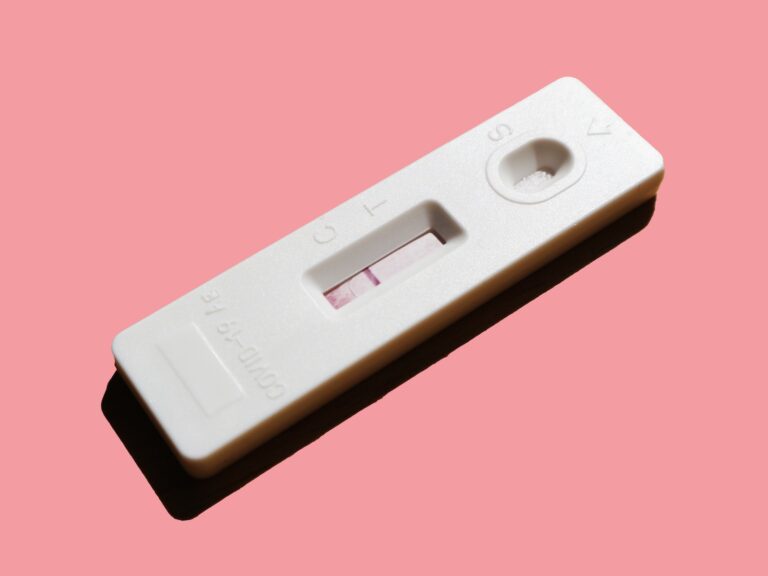Many women want to know the results of a pregnancy test as soon as possible. However, the accuracy of a test depends on a number of factors, including when you last had unprotected sex.
It’s best to wait at least two weeks after sex before taking a home urine test. This gives your body time to build up hCG, the hormone detected by pregnancy tests.
Wait at least two weeks after unprotected sex
When it comes to sexual intercourse and protection against pregnancy, there are a lot of things to keep in mind. Knowing when you can take a pregnancy test after unprotected sex is one of those things. It’s recommended to wait at least two weeks after engaging in sex before taking a test to get the most accurate results.
Pregnancy tests work by measuring hCG, a hormone produced by the fertilized egg and detected by most at-home tests. If you take a test too early, it may come back as a false negative, leading to confusion and disappointment. To avoid this, it’s important to track your menstrual cycle and be sure you wait until your expected period is late or you have a missed period.
It’s also worth noting that sperm can still survive in the body for several days after an unprotected encounter, which can impact a test result. Depending on the brand of test, some can detect a pregnancy even before your missed period. However, it’s still better to wait until you are close to your expected period before testing, just in case.
If you’re worried about missing your period and you want to know if you are pregnant, you can visit a doctor for a blood test, which is more accurate than at-home tests. Alternatively, you can use emergency contraception like the “morning after pill,” which works up to five days after unprotected sex.
Get checked out by a doctor
You might be curious to know if, to quote the movie Juno, you’re “preggo.” But there are some important things that you need to know about pregnancy tests before taking one. For example, the timing of a test can have a huge impact on your results. And that’s because the body doesn’t begin producing the pregnancy hormone hCG until after implantation, which usually happens around six to 12 days after you’ve ovulated.
Some at-home pregnancy tests can be used a few days before your missed period, but they tend to be less accurate than those that work closer to the time of your expected menstrual cycle. If you decide to take a test before your missed period, make sure you read the instructions carefully and follow them exactly. This will ensure that the test gives you the most accurate result possible.
Another thing to remember is that early pregnancy symptoms can look like spotting or a regular menstrual cycle. These symptoms are actually implantation bleeding, which can happen when a fertilized egg attaches itself to the lining of your uterus. If you have these symptoms, it’s a good idea to see your doctor for confirmation of your pregnancy. They can also give you advice about your options if you aren’t ready to be a mom right now.
At-home tests
The at-home tests you buy at drug and grocery stores are very accurate if used correctly. They are designed to detect a specific hormone in urine (pee). High levels of this hormone, called human chorionic gonadotropin or hCG, indicate that you’re pregnant. Generally speaking, they are only able to detect a pregnancy if it’s within the first 10 days of conception, though some tests can be more sensitive and might even be able to detect the pregnancy before you miss your period.
The test your doctor uses is very similar to the one you use at home, but it’s likely more reliable because your doctor has access to a blood sample. In addition, your doctor may have more information about you from your health history and physical exam than a home test can provide.
The accuracy of at-home tests depends on several factors, including how soon after sex you take the test and whether you are using any medicines that might affect the results. Using the test at an optimal time and following the instructions carefully will ensure that your results are correct. However, it’s also possible to get a false negative or positive result on a home pregnancy test. This can be due to testing too early or using the test incorrectly. Most test instructions are written in plain language and are easy to understand, but some can be confusing.
Blood tests are more accurate
All pregnancy tests work by detecting a hormone called hCG in your pee or bloodstream. This is produced once an egg has successfully implanted into the uterus. It’s important to understand your menstrual cycle and how it affects when you ovulate before testing, as this will help you determine the best time for a test. Tracking your period with an app like Flo can also help you deduce when you may have ovulated and your fertile window.
While some at-home tests claim to be able to detect hCG in your body even a few days before your period is due, it’s still best to wait at least two weeks after unprotected sex. This will allow the hCG levels to build up sufficiently to provide a more accurate result.
It’s also important to read the instructions that come with the pregnancy test kit and follow them carefully. Depending on the type of test and your menstrual cycle, different times of day will have higher or lower hCG levels in your urine, so it’s important to take the test at the right time of the day.
When hCG levels are high in the morning, the chances of a more accurate result are higher than they will be in the evening. It’s a good idea to wait until the morning to take your test for the most accuracy, but this isn’t always possible.
See Also:



